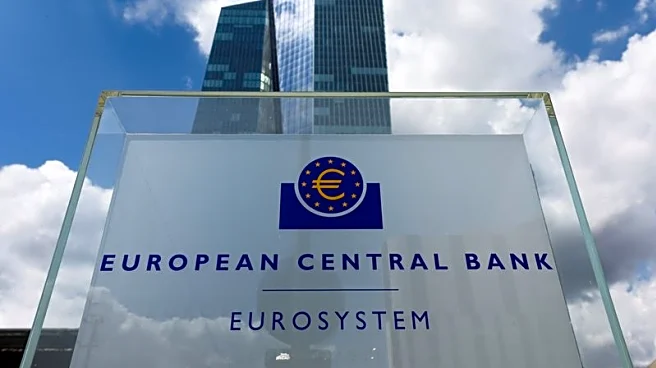What is the story about?
What's Happening?
In the first half of 2025, cash buyers accounted for one-third of home sales in the United States, according to a report from Realtor.com. This trend, although slightly down from 2024, highlights the significant influence of cash transactions in the current housing market. Realtor.com Chief Economist Danielle Hale noted that the prevalence of cash buyers is more pronounced now than in pre-pandemic years, when the average share of all-cash transactions was 28.6%. The COVID-19 pandemic saw rapid home price appreciation and fierce competition for limited listings, leading to a surge in cash transactions. High-wealth buyers, investors, and those with substantial equity are able to move quickly and often win in competitive situations, posing challenges for traditional, mortgage-reliant buyers. The report indicates that cash transactions are particularly common at the market's extremes, with two-thirds of homes priced below $100,000 and over 40% of homes priced above $1 million being purchased with cash.
Why It's Important?
The dominance of cash buyers in the housing market has significant implications for various stakeholders. For traditional buyers relying on mortgages, the competitive edge of cash transactions adds another hurdle in an already challenging affordability environment. This trend reflects broader economic dynamics, including wealth concentration and investor activity, which influence housing accessibility. States like Mississippi, Montana, Idaho, Hawaii, and Maine have seen high shares of cash transactions, driven by factors such as lower home prices, limited credit access, and affluent second-home buyers. The prevalence of cash transactions can impact housing market stability, affordability, and accessibility, particularly for first-time homebuyers who face steep monthly costs and lack home equity.
What's Next?
The future of cash transactions in the housing market may depend on changes in mortgage rates. If borrowing costs for financed homebuyers decrease, the competitive advantage of cash buyers could diminish. Additionally, shifts in economic conditions, such as in-migration of wealthier households and rebounding luxury demand, could further influence the dynamics of cash transactions. Stakeholders, including policymakers and real estate professionals, may need to address the challenges posed by the dominance of cash buyers to ensure a balanced and accessible housing market.
Beyond the Headlines
The trend of cash transactions in the housing market raises ethical and cultural questions about housing accessibility and equity. The concentration of wealth and investor activity can exacerbate disparities in housing access, particularly for younger and less affluent buyers. Long-term shifts in housing market dynamics may require policy interventions to promote equitable access to homeownership and address the challenges posed by cash buyers.


















